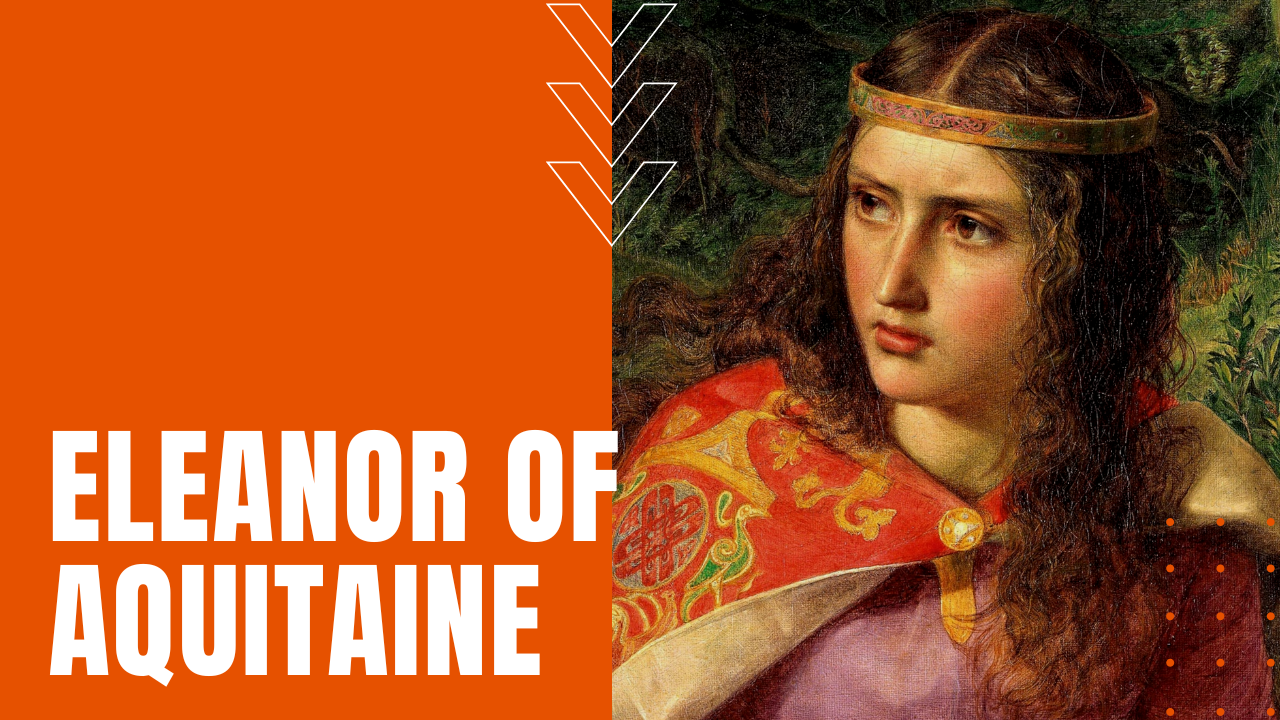Eleanor of Aquitaine

Born in the south of France around 1122, Eleanor of Aquitaine grew up into a life of culture and privilege, thoroughly educated in literature, philosophy and the rigors of courtly decorum, becoming the duchess of Aquitaine and the most eligible single woman in Europe when at 15 years of age her father passed away.
Failed First Marriage
Mere weeks after marrying the son of French King Louis the 6th, the young couple were crowned king and queen of France on Christmas Day, 1137, after King Louis the 6th passed away. Both still in their mid-teens, the couple quickly grew estranged during the crusade of 1145, ending in annulment and divorce seven years later. Marrying the Duke of Normandy and future King Henry II, Eleanor and Henry were crowned king and queen of England following the death of King Stephen.
Fruitful Second Marriage
The couple would produce eight children together until their separation in 1167, most likely due to Henry’s quite visible parade of infidelities. Returning to her home in Poitiers France, Eleanor established the now legendary Court of Love, where she encouraged a culture of chivalry among her many courtiers, which heavily influenced the troubadours, musicians and writers of the day.
16-Year House Arrest
After supporting her son Young Henry in a plot to overthrow her ex-husband, King Henry had Eleanor arrested and imprisoned in various castles and strongholds for the next 16 years, until in 1189, upon Henry II’s death and her son Richard the Lionheart’s ascension to the thrown, Richard restored Eleanor’s full freedom for the remainder of her life. After Richard the Lionheart took his father’s place to lead the Third Crusade, upon his death in 1199, Eleanor lived to see her youngest son, John, ascend to the thrown, where he employed his mother as an ambassador envoy to France.
Life of a Nun
She would go on to support John’s rule against a coup d’etat by her grandson Arthur, before retiring from court to the celibate life of a nun at Fontevraud Abbey, where she passed away in 1204, making Eleanor of Aquitaine, one of the most legend-packed royals of Medieval Europe.
